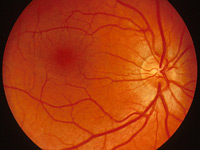|
|||||||||||||||||||||||||||||||||||
| Optometry/Science - 3952 | |||||||||||||||||||||||||||||||||||

Optometry combines the theoretical discipline of vision science with the clinical art of primary eye care. Vision science includes the optics of lenses, the physiology of the eye, the psychophysics of vision and the neuroscience of the brain. Optometry includes the diagnosis and management of ocular disease, the dispensing of spectacles and contact lenses, the management of people with special needs (children, low vision), sports vision and vision in the workplace.
The School of Optometry and Vision Science offers a 5 year full-time combined BOptom BSc program. Graduates of this program will be able to register as an optometrist in Australia. The degree is also recognised in New Zealand and in most parts of Asia. Job opportunities in this field are excellent and are expected to remain excellent given the high visual demands in the modern computer-based workplace, and the aging population in Australia. An innovative feature of this program is its alternate entry mechanism. Students who do not achieve direct entry into the Optometry program may be eligible for a transfer position. Students wishing to apply for transfer into the BOptom BSc (3952) program will be expected to have:
Students meeting these requirements will be ranked using an algorithm that includes their UAI or equivalent score, their WAM achieved at the end of Stage 1 of their BSc (3970) Vision Science study plan and their UMAT result. As a guide, it is anticipated that you will need to have achieved a minimum WAM of 65 and a superior performance in both VISN1211 - Vision Science 1 and VISN1231 - Optics 1. A superior performance would normally be indicated by a high credit or distinction grade.
Assumed knowledge UNSW has a policy of Assumed Knowledge. It is assumed that through secondary or equivalent studies a student will have achieved a level of knowledge of the subject area that is considered appropriate for their future University study. The BOptom BSc program assumes that students entering the program have a strong ability in English, Chemistry and HSC Mathematics (does not include General Mathematics; must have a mark of at least 90; HSC Extension Mathematics is highly recommended). Other recommended knowledge is Physics. Bridging Courses are available to students entering UNSW; these courses usually run in January - February, before the start of Semester 1. Students who do not have the appropriate assumed knowledge are strongly advised to undertake the relevant Bridging Course/s, or other appropriate preparation. Program Objectives and Graduate Attributes Please contact the School of Optometry for the Program Objectives and Learning Outcomes.
Stage 1
Stage 2
Stage 3
Stage 4
Stage 5
General Education Requirements 6 UOC to be completed in Stage 3, or 12 UOC if transferring down to the BSc 3970 with a Major in Vision Science. See also the General Education Requirements link at left.
For information regarding fees for UNSW programs, please refer to the following website: https://my.unsw.edu.au/student/fees/FeesMainPage.html
|
|||||||||||||||||||||||||||||||||||


